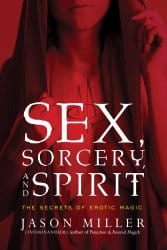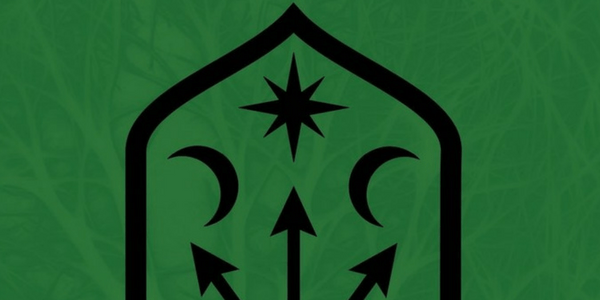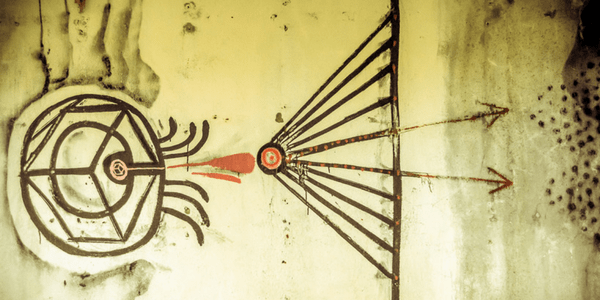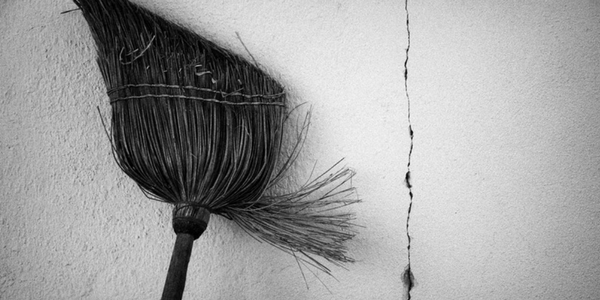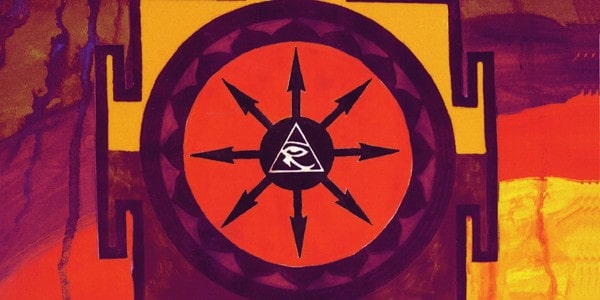 We’re nearing the end of the year, that time for best-of lists, and we thought we’d start with the most popular books of 2015 — at least, in terms of Spiral Nature.
We’re nearing the end of the year, that time for best-of lists, and we thought we’d start with the most popular books of 2015 — at least, in terms of Spiral Nature.
Spiral Nature publishes a lot of book reviews each year — this year we’ve already published more than 80 in-depth reviews — and some of the books on this may have been inspired by our reviews and other coverage, and I think that’s pretty great. Both for the authors of the books we’re highlighting, and for you, the occultnik readers, who we may be exposing to new stuff you hadn’t encountered previously.
Also check out our giant list of 25 occultnik books reviewed and ranked from 2015 — a list that features only books published in 2015 — the latest and the most talked about books of the year.
#1 Condensed Chaos: An Introduction to Chaos Magic
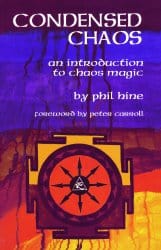 A classic work on chaos magick written by Phil Hine, Condensed Chaos is essential reading for budding chaos magicians. That’s probably why we’ve written about it a few times.
A classic work on chaos magick written by Phil Hine, Condensed Chaos is essential reading for budding chaos magicians. That’s probably why we’ve written about it a few times.
Psyche wrote about it in a (very early) review, and it also appears in list of top 5 chaos magick books, and yet again in Psyche’s list of chaos magick books, originally written as a pamphlet for Pagan harvest festival.
So, it’s come up a few times here.
This is definitely a should-have introductory text covering a wide variety of topics from the practical aspects of magick: dream recall, sigil, servitors, etc., to the more esoteric theories and suggestions as to why things work the way they do — and why not. Condensed Chaos: An Introduction to Chaos Magic
is indeed an excellent introduction to chaos magick, and to magick in general.
Check out Condensed Chaos: An Introduction to Chaos Magic for yourself, and let us know what you think.
#2 The Infernal Texts: Nox and Liber Koth
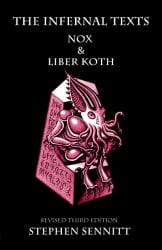 Another title focusing on chaos magick, The Infernal Texts: Nox and Liber Koth, by Stephen Sennitt.
Another title focusing on chaos magick, The Infernal Texts: Nox and Liber Koth, by Stephen Sennitt.
Originally, Liber Koth and Nox: The Black Book were published separately by Logos Press in 1997 and 1998 respectively. Now in its third edition, The Infernal Texts remains as important as ever, especially in capturing the magick of chaos’s earliest years.
The book has appeared a few times on Spiral Nature, namely in a review of an earlier edition, and, once again, appearing on our list of top 5 books on chaos magick.
Infernal Texts: Nox and Liber Koth provide an enchanting snapshot of chaos magick’s darker influences in the 1980s, the edge of which seems dulled in subsequent generations. It’s an intriguing book.
What are your favourite early chaos magick texts?
#3 Hands-On Chaos Magic: Reality Manipulation through the Ovayki Current
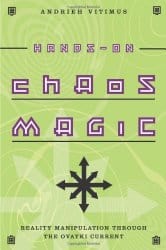 Andrieh Vitimus’s Hands-On Chaos Magic: Reality Manipulation through the Ovayki Current is one of the view third-wave chaos magick books to come out in the past few years, and it’s definitely one of the better ones.
Andrieh Vitimus’s Hands-On Chaos Magic: Reality Manipulation through the Ovayki Current is one of the view third-wave chaos magick books to come out in the past few years, and it’s definitely one of the better ones.
This book came up in an essay from Psyche titled “Chaotes then and now,” contrasting the difference between old guard chaos magick and what’s emerged since.
Vitimus’s chaos magick represents a friendlier approach, and it’s a welcome change.
There have since been new texts issued from the old guard, namely Peter Carroll and his Apophenian, The Octavo: A Sorcerer-Scientist’s Grimoire and, most recently, EPOCH: The Esotericon & Portals of Chaos (our review coming soon). But I haven’t see many new books from new chaotes in the past few years.
Are new people still coming to chaos magick? What are they thinking and writing about these days?
#4 The Complete Book of Demonolatry
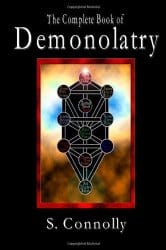
It’s been only in the past couple of years that writers have begun to pitch us articles about demonology, and it’s been a welcome addition to the mix.
S. Connolly‘s work has come up in two recent articles on the subject. Lary Love Dolley wrote about necromancy for the site in a controversial article for the site last year, “Necromancy in the digital age.”
Marie RavenSoul’s “Alternative approaches to the Goetia,” also proved controversial, but here at Spiral Nature, we’re open to new expressions of worship. It’s kind of our thing.
As Marie writes, drawing on Connolly’s work:
It is important to note that demonolators don’t believe in the Christian god or how the Abrahamic religions view the demons or Satan. In fact, they see Satan as the Whole and the demons as a part of the Whole just like everything else including people, animals, and plants.
What are your thoughts on demon worship? Does it seem much different than the worship of any other kind of entity, and, if so, how and why?
#5 Undoing Yourself with Energized Meditation and Other Devices
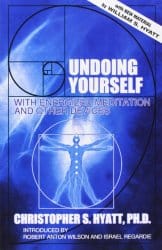 The late Christopher S. Hyatt‘s classic, Undoing Yourself with Energized Meditation and Other Devices, has remained popular.
The late Christopher S. Hyatt‘s classic, Undoing Yourself with Energized Meditation and Other Devices, has remained popular.
The book came up most recently in Seth’s “Practical alchemy: A beginner’s report,” where he he first heard about the Paracelsus College. He writes:
In one of the appendices, a former student at the Paracelsus College talks about his experience with physical or practical alchemy.
Though not specifically a book on chaos magick, it definitely bears influences from chaote thought, and appears in Psyche’s list of chaos magick books.
In turn, Christopher S. Hyatt, founder of New Falcon Publications, wrote numerous books, and his work has had a profound influence on occculture.
If you haven’t read Undoing Yourself, it’s highly recommended that you pick up a copy. If you have read it, let us know what you think. Did you go through all of the exercises? How did they work or not work for you?
#6 Liber Null & Psychonaut: An Introduction to Chaos Magic
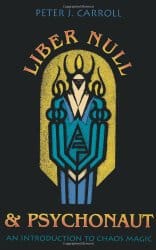 It’s impossible to discuss chaos magick without also discussing one of it’s founding books, Peter Carroll’s Liber Null & Psychonaut: An Introduction to Chaos Magic.
It’s impossible to discuss chaos magick without also discussing one of it’s founding books, Peter Carroll’s Liber Null & Psychonaut: An Introduction to Chaos Magic.
Of course it’s in our list of the top 5 books on chaos magick, and Psyche’s list of chaos magick books, as well as in our list of definitions of chaos magick.
It turns up in pretty much every discussion on chaos magick, from “Chaos magick: Doing what works and more” to “Chaotes then and now.”
Peter Carroll‘s Liber Null & Psychonaut details strenuous exercises to hone the will and expand the magician’s skillset,3 and Liber Kaos lays out a 21-stage training program to further develop various techniques. While these training programs are not required of a chaote, similar, if perhaps less organized, self-training systems will be found in any chaote’s practice.
Have you gone through the exercises outlined? What did you think?
#7 Sex, Sorcery, and Spirit: The Secrets of Erotic Magic
This is Jason Miller‘s fourth and most recent book published by New Page Books.
Psyche interviewed Jason Miller about the book, and they chatted about
sex magick, the dangers of marathon sex sessions, and when it’s appropriate to let your partner know that you’re a wacky occult sex magician.
Donyae Coles, previously unfamiliar with sex magick, reviewed Sex, Sorcery, and Spirit for the site, and her impressions as someone new to the subject provide an interesting counterpoint.
Sex magick is a topic that comes up often in searches, but information on it tends to be spare, and Miller’s book is a solid introduction.
Many of you are likely familiar with Jason Miller’s blog and his books. What are your thoughts?
#8 Practical Sigil Magic: Creating Personal Symbols for Success
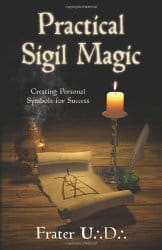 Frater U.: D.: ‘s Practical Sigil Magic: Creating Personal Symbols for Success has been a classic of sigil magick since its original publication in 1990.
Frater U.: D.: ‘s Practical Sigil Magic: Creating Personal Symbols for Success has been a classic of sigil magick since its original publication in 1990.
It comes up again and again in reference to this topic. Namely in “Sigils, servitors, and godforms: Part I” and in “Sigils, servitors, and godforms: Part II.”
At the time Psyche’s list of chaos magick books was originally published, the book was out of print, though it still made the list anyway. Psyche actually has a spiralbound photocopy that some kind chaote mailed to them when it was fetching upwards of $300 in the rare books market.
Happily, it’s since been reissued by Llewellyn Worldwide in a new revised edition, and it’s once more available at a much friendlier price.
What was your first introduction to sigil magick? What do you think of Frater U.:D.:’s books?
#9 Now That’s What I Call Chaos Magick (v. 1 & 2)
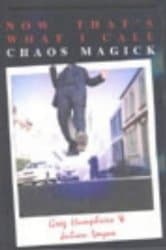 Julian Vayne and Greg Humphries published Now That’s What I Call Chaos Magick is, without a doubt, one of the best books on chaos magick to be published in the last ten years.
Julian Vayne and Greg Humphries published Now That’s What I Call Chaos Magick is, without a doubt, one of the best books on chaos magick to be published in the last ten years.
It appears in Psyche’s list of chaos magick books, our list of the top 5 books on chaos magick, and Psyche’s list of 10+ books to a new magician, where it appears (coincidentally?) as number nine.
Psyche reviewed Deep Magic Begins Here, Julian Vayne’s latest book, earlier this year, and it’s also worth a look, but Now That’s What I Call Chaos Magick remains unique:
Formulaic rites aren’t given for the reader to perform, and theories aren’t expounded upon in great detail;NTWICCM shows you what chaos magick is like in action. It’s an odd approach, but, in many ways, it works.
What books do you find to be staples in your recommended reading lists?
#10 The Lost Art of Enochian Magic: Angels, Invocations, and the Secrets Revealed to Dr. John Dee
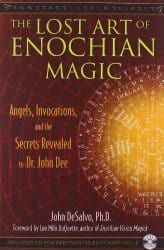 John DeSalvo‘s first book on Enochian magick, The Lost Art of Enochian Magic: Angels, Invocations, and the Secrets Revealed to Dr. John Dee, was our book club selection for the forums, and while things got started there, the discussion unfortunately petered out before we got too deep into the material.
John DeSalvo‘s first book on Enochian magick, The Lost Art of Enochian Magic: Angels, Invocations, and the Secrets Revealed to Dr. John Dee, was our book club selection for the forums, and while things got started there, the discussion unfortunately petered out before we got too deep into the material.
His third book in the series, Enochian Magic and the Higher Worlds: Beyond the Realm of the Angels, was recently reviewed by J Simpson, and has also proven extremely popular and much shared. Of it, J writes:
DeSalvo even goes so far as to include a phonetic translation to let the practitioner know how to pronounce Enochian words. Some may criticize De Salvo for constructing his own Enochian call, but that’s precisely the kind of thing that makes this such an interesting and exciting field of study.
Who are your favourite authors on Enochiana? What books would you recommend to someone just starting out?
#11 The Magiculum
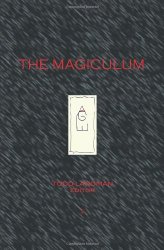 Edited by Todd Landman, The Magiculum is an anthology of works by magicians of various types: those who practice stage magic and those who follow more spiritual pursuits.
Edited by Todd Landman, The Magiculum is an anthology of works by magicians of various types: those who practice stage magic and those who follow more spiritual pursuits.
Todd Landmand decided he wanted to create
a magiculum vitae, a sort of magical resume, and became interested what such a thing would look like among those of his friends and associates. Landman invited them to write essays about their experiences, and the only guideline seems to have been three questions: 1) What in your upbringing and formation lead you to magic?, 2) What does magic mean for you?, and 3) In what ways odes magic affect your day-today-living? From there, The Magiculum was born.
It was an unusual approach, but one that yielded interesting results. You can read Psyche’s full review of The Magiculum.
While Shawn C. Knight’s magick code of the mid-90s has nothing to do with this, does anyone else recall pain-painstakingly recording your personal affiliations and aspirations in extreme detail, and updating it when necessary? C’mon. Psyche wasn’t the only one.
Thus concludes our list for the most popular books of 2015, at least those that we’ve discussed at various points throughout the site.
What books did we miss? Which books should we be talking about more?


